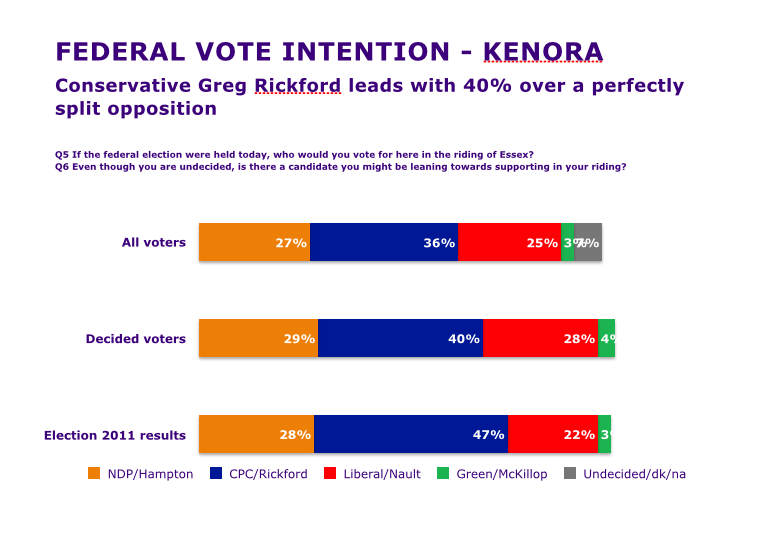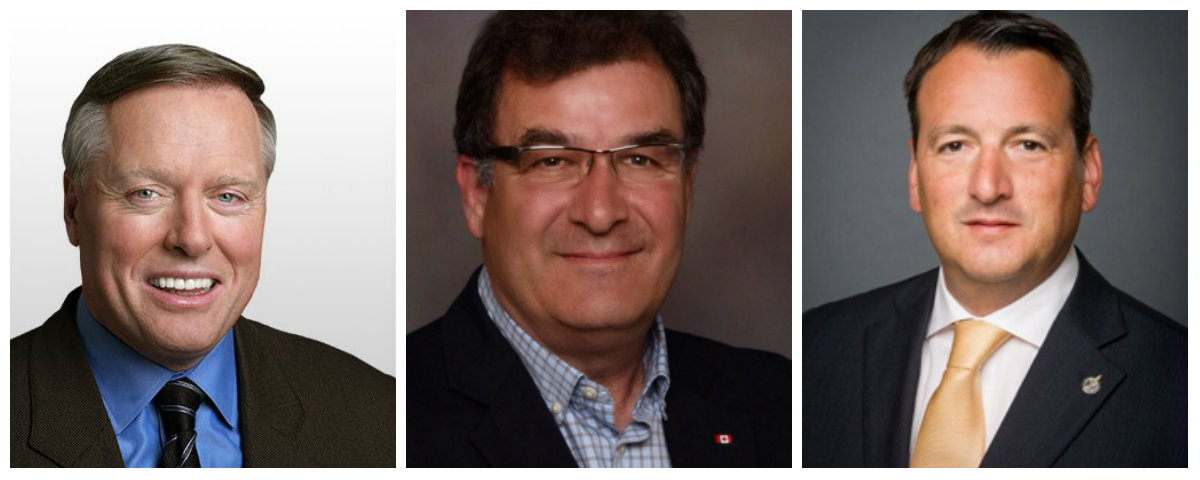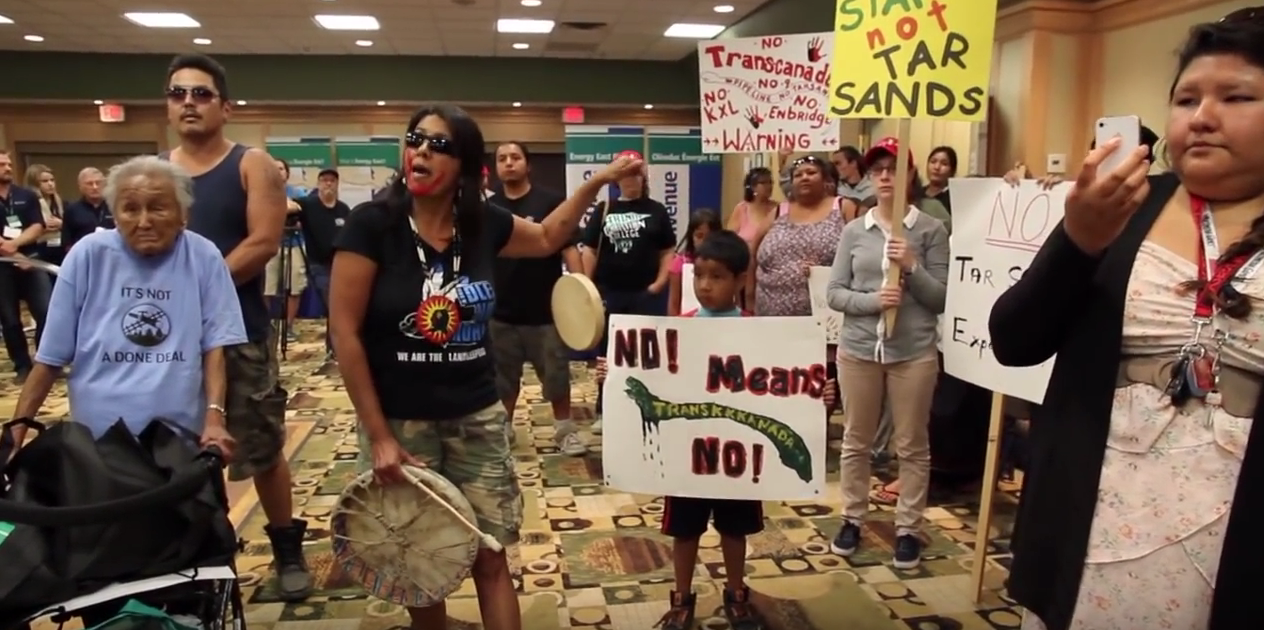Despite an abundance of natural resources including minerals, timber, and freshwater lakes, no one in the northwestern Ontario riding of Kenora takes drinking water for granted.
The riding is one of the largest in Canada, and home to 40 different Indigenous communities, many of which have been boiling water for decades under official advisory. The Neskantaga First Nation in particular has been boiling water for more than 20 years, and the Grassy Narrows First Nation has even declared a “state of emergency.”
Kenora has long been identified a “riding to watch” by media and pollsters in the 2015 federal election. Indigenous voters represent around 35 per cent of Kenora’s voting population, and many haven't been pleased with their treatment under the Prime Minister Stephen Harper.
"(Harper) is threatening our treaties, our land, our right to protect these lands — and I feel that's not right," Wauzhushk Onigum Nation member Nicole Skead told APTN in a recent interview.
The Indigenous vote could even yank victory away from incumbent Conservative Greg Rickford, who has held the seat since 2008.
A former Liberal stronghold
Kenora packs a powerful political punch with more than 44,000 potential voters, and its territory spans the City of Kenora itself along with parts of Thunder Bay, Bertrand, McLaurin, Furlonge, Fletcher, and Bulmer.
It was a Liberal stronghold for 20 years before turning blue for Rickford, who is now Minister of Natural Resources and Minister for the Federal Economic Development Initiative for Northern Ontario (FedNor). Rickford won by wide margins in the 2011 election, and according to an exclusive National Observer poll by Environics Research, he holds 40 per cent of support from decided voters.

Environics did telephone surveys of 647 eligible voters in Kenora between October 2 to 5, asking voters who they would vote for if the election was today and, if they're undecided, who they are leaning towards. The research was conducted using Interactive Voice Response (IVR) technology and the findings were weighted by age and gender to reflect the demographic makeup of the electorate. A survey of this size can be considered accurate to within plus or minus 3.8 percentage points, 19 times out of 20.
The opposition is split rather evenly between Liberal candidate Bob Nault and NDP candidate Howard Hampton, both of whom are political veterans and have previously represented the riding at the provincial or federal level. Hampton served as an MPP for Kenora in the Legislative Assembly of Ontario until 2011, while Nault used to be Minister of Indian Affairs under the Chrétien government.
Green Party candidate Ember McKillop has pledged to improve conditions for First Nations' drinking water if elected.

Water, missing women and omnibus bills
Yet despite early predictions of an easy Conservative conquest, First Nations advocate Tania Cameron believes co-ordination between the riding’s Indigenous voters could overthrow the incumbent.
“We can actually swing where the vote goes if we decide to (collaborate),” she told National Observer. “There’s a whole generation of people that have not had access to clean drinking water in their community.”
Cameron is the lead organizer of First Nations Rock the Vote in Kenora, a grassroots movement that informs, registers, and empowers the riding’s Indigenous voters. She said First Nations communities are unhappy with the legacy of the Harper government.
“They’re insulted that the (new) election laws have made it harder for them to vote,” she explained. “So they see this as a challenge they need to rise up against.”
Other contentious issues include the need for clean water infrastructure, the lack of federal response to Canada's 1,200 missing and murdered Indigenous women, and omnibus bills that have slashed Canada’s freshwater protection and compromised freedom of speech for environmental activists.
Such concerns resonate with many of Kenora’s voters and a communal desire to protect the riding’s natural resources has brought many Indigenous and non-Indigenous voters together.
Environmental concerns on the ballot
Kenora made national headlines in 2012 when the Department of Fisheries and Oceans announced the closure of the nearby Experimental Lakes Area (ELA), one of the world’s most influential freshwater research facilities.
With the support of scientists and environmental advocates, residents of the riding launched a national campaign to save the 58 study lakes and field stations, and In 2014, the International Institute for Sustainable Development offered to fund and reopen the ELA.

Nobody has forgotten this debacle under Rickford’s watch, said Transition Initiative Kenora director Teika Newton. She added that TransCanada’s hotly-debated Energy East pipeline proposal will be a major election issue as well.
“We’re really quite concerned that a breach in that line would affect communities downstream on the Winnipeg River or potentially the City of Kenora’s drinking water,” she said in a phone interview. “People have been very vocal about Energy East here.”
The natural gas pipeline, which runs directly through the riding, is slated for a conversion that would see more than 1 million barrels of crude oil shipped per day from Alberta and Saskatchewan to refineries in Eastern Ontario. It would be the third largest oil pipeline in the world, and the largest in North America if built.
Cameron said the pipeline is “one of the biggest issues” that has brought collaboration between voters from all walks of life across the riding.
Rickford has publicly endorsed the pipeline in his capacity as Kenora MP.
So where does all the support for the incumbent Conservative come from?
The City of Kenora
According to polling aggregator threehundredeight.com, the City of Kenora holds most of the election cards, and any party that wants “a chance to win the riding” needs to make gains in the municipality.
The City of Kenora has a population of roughly 16,000, and according to Newton, is currently awash in blue Tory support signs.
“Part of that is a reflection of the Conservative candidate having a much larger advertising budget than anyone else,” she explained. “(But) the City of Kenora is for sure the Conservative stronghold in the riding.”
Kenora Mayor David Canfield said the municipality has had “very good relationships” with the federal government through Rickford’s representation, but said he would expect the same from any of the candidates running for election.
“We don’t get into party politics,” he told National Observer. “Some big cities do, we don’t. We want open relationships.”
Canfield said Kenora needs an MP that puts the constituents first, toes the lines of his or her party, and lobbies for the infrastructure, affordable housing, health care and clean water funding required for such a large and diverse riding.
Since 2008, Rickford has delivered millions of dollars to the municipality, including $3 million for a downtown revitalization project, $1.1 million in Community Adjustment Funds, and $5.2 million for infrastructure projects throughout Northern Ontario.
It all looks good on paper, but credit for these investments belongs at least in part, to the City of Kenora, said Newton. When the economy went sour in 2008, she explained, the municipality was prepared with an infrastructure investment projects that would be attractive to the new federal Economic Action Plan.
“Kenora was in a very favourable position to capitalize on that,” she told National Observer. “That had nothing to do with Greg Rickford and everything to do with strong municipal leadership in Kenora.”
None of the candidates were available to speak to National Observer, but they'll have a chance to duke it before the public out at an all-candidates forum in Kenora on Wednesday evening.





Comments